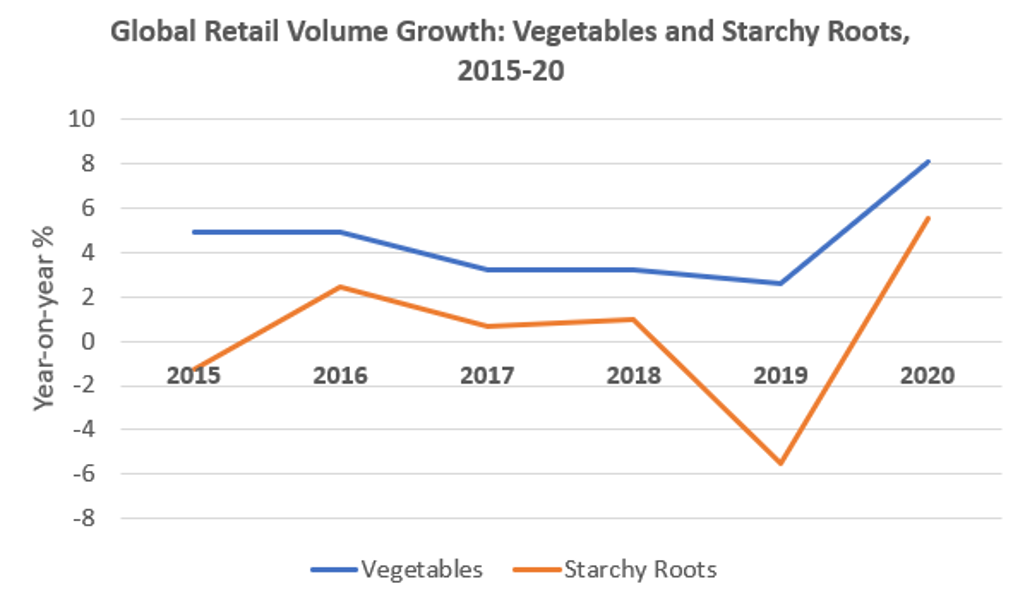In times of uncertainty and stress, people often seek the comfort of the familiar. Food that reminds consumers of home is seeing increased popularity across generations. Older adults reminisce and reflect on their youth through ingredients and dishes that are associated with their past, whilst younger adults seek the sense of history and belonging that local produce brings them.
Environmental and sustainability concerns infiltrate the market
Globalisation has brought different cultures and cuisines closer together. Consumers can eat meals from around the world, bringing new flavours and experiences. They can obtain out-of-season and exotic produce if so desired, despite a premium price tag.
Consumer foodservice outlets and ready meals have shown an increased consumer preference for country-specific cuisines such as Italian pasta or Indian curry. The more consumers travel, the more they appreciate the ability to purchase foods from different regions, globally.
In recent years, there has been a growing focus on environmental and sustainability concerns amongst consumers and businesses. Many consumers put more thought into their purchases, as they grew more aware of issues such as food miles when choosing fresh food items and were prepared to pay more for products with a lower carbon footprint and for other environmentally friendly alternatives.
This also carried over to packaging, where there was a growing demand for fresh food packaging to be reduced or scrapped altogether. This led to retailers adopting or experimenting with new formats, particularly for fruit and vegetables – including vertical farms, dispensary systems, and even pick-your-own veg within retail outlets.
How Coronavirus (COVID-19) is contributing to the growth of home country fresh food
This version of the sustainability trend continued to experience momentum until the COVID-19 pandemic hit. Suddenly, immediate needs and health overshadowed sustainability, as consumers sought to protect and feed themselves.
Whilst in many markets the preference for locally grown produce accelerated, this was more to do with food safety concerns and fear of shortages (caused by issues such as closed borders) than due to concerns about carbon footprint. A clear example of this shift is that plastic food packaging has regained popularity in 2020, as consumers seek to protect themselves from contagion.
As countries implemented various forms of lockdown, supply and demand has been disrupted. As foodservice outlets closed, food retail demand rose sharply at the moment that the supply chain faltered, with COVID-19 disrupting everything from the pickers on the farm to the export of the produce.
This resulted in supply shortages of certain products in different countries. There was a growing fight against food waste as countries needed to ensure that there was enough for all. Greater food security has become the new normal. As the pandemic has evolved, supply chain issues were slowly resolved but the recession has taken hold; spending power has weakened, with premium-priced products under threat, facing a slowdown in demand.
As consumers experience stressful situations such as losing jobs, facing lockdown or home-schooling children, so consumers think back to “simpler times” when life seemed easier. This can lead to a yearning for experiences, and dishes, of one’s past.
Food manufacturers such as General Mills and Kraft-Heinz have found that there is increased consumer demand for processed food that had previously grown unpopular. However, whilst the recession, nostalgia and concerns over having enough food in the home have resulted in a resurgence in the sales of processed food, some consumers are breaking away from processed food and seeking more “natural” fresh food.
Source: Euromonitor International
Locally produced food is often considered healthier and tastier as it can move from farm to fork in a faster time frame than that produced in other countries. The shortened supply chain is claimed to bring a higher nutritive benefit as produce is harvested at its peak, thus better at improving one’s health and helping fight off disease. Fresh produce that is naturally healthy and full of vitamins, such as oranges, are seeing an increase in sales.
The support of local industries such as the producers, manufacturers and distributors of fresh food is also appealing to these increasingly aware and conscientious consumers. The sharing of recipes is also growing as consumers are spending more time at home and seek ways to pass the time and treat themselves with more creative meals than they might have pre-COVID-19, back when they were freely able to eat out-of-home and were more time-pressed.
All these factors have meant that the shift to home country produce has not only happened due to necessity, but through consumers turning back to locally-sourced food and native ingredients as a source of identity. Overall, indigenous inputs/homegrown food and country of origin claims are becoming increasingly sought after as consumers seek comfort in the familiar.

